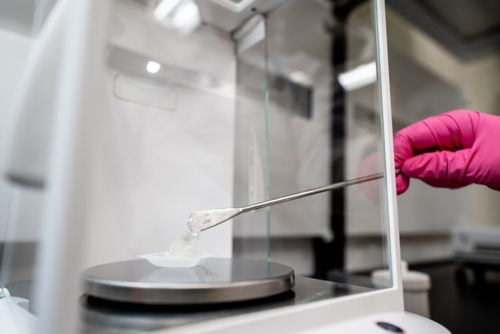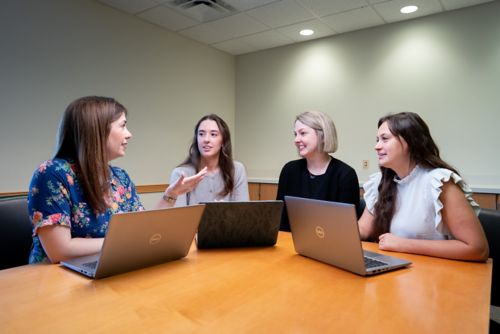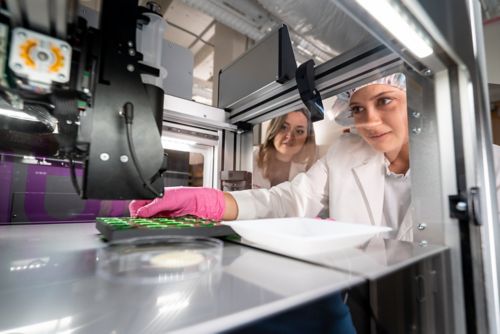St. Jude Family of Websites
Explore our cutting edge research, world-class patient care, career opportunities and more.
St. Jude Children's Research Hospital Home

- Fundraising
St. Jude Family of Websites
Explore our cutting edge research, world-class patient care, career opportunities and more.
St. Jude Children's Research Hospital Home

- Fundraising
Brooke Bernhardt Lab
Examining the role of pharmacogenomics to study disparate outcomes across various pediatric populations with cancer
About the Brooke Bernhardt Lab
Our goal is to improve the treatment of catastrophic childhood illnesses by minimizing treatment-related toxicities and optimizing therapeutic approaches. Our lab currently has three major focus areas: the exploration of pharmacogenes in large, diverse cohorts of pediatric patients with cancer; the study of pharmacogenomic impact in survivors of childhood cancer in St Jude Lifetime Cohort Study (St. Jude LIFE) and Childhood Cancer Survivor Study (CCSS) cohorts; and the refinement of drug delivery methods via semi-autonomous and three-dimensional printing of pharmaceuticals.

Our research summary
Our study of the role of pharmacogenomics in treatment outcomes leverages two significant cohorts: the Molecular Characterization Initiative (MCI) of the NCI and Children’s Oncology Group (CoG) and the Reducing Ethnic Disparities in Acute Leukemia (REDIAL) cohort of children treated at centers across the Southwestern part of the United States.

These two large, diverse cohorts of patients provide pharmacogenomic data that can be linked with clinical outcomes and toxicities. The MCI cohort currently includes a focus on solid tumors and rare tumors, while the REDIAL cohort focuses on Latino children with acute lymphoblastic leukemia (ALL). Both cohorts are designed to help improve the treatment of difficult cancers. The MCI examines less common tumors where survival rates have been historically lower whereas the REDIAL cohort studies health disparities, the increased risk of relapse, and lower survival experienced by Latino children with ALL.
We aim to describe the prevalence of severe acute toxicities and treatment-related toxicity clusters and subsequently identify a pharmacogenomic rationale for these toxicities and clusters in at-risk children. In our study of the pharmacogenomics of childhood cancer survivors, we will explore the influence of pharmacogenomics on the development of late effects of treatment, treatment of common conditions of adulthood, and patient/caregiver understanding of pharmacogenomic data.
Finally, our Formulation Sciences program is focused on improving the delivery of medications to pediatric patients. Many medications used to treat childhood catastrophic illnesses are designed with the adult patient in mind, thus finished dosage forms are not always designed to deliver the optimal dose in pediatric patients. We leverage novel technology, including semi-autonomous compounding solutions and three-dimensional printing to create, deliver, and study new ways to deliver pediatric-friendly dosage forms which optimize medication adherence and minimize the risk of error and toxicity.
Across our major research focus areas, our aim is to contribute to the advancement of outcomes for children with catastrophic illnesses by improving the understanding of pharmacogenomic influence in various pediatric populations and expanding mediation administration methods that increase medication adherence in children.

Selected Publications
Contact us
Brooke Bernhardt, PharmD, MS, FCCP, BCOP, BCPPS
Associate Member
Division Director
Chief Pharmaceutical Officer
Department of Pharmacy and Pharmaceutical Sciences
Room C1302B
St. Jude Children’s Research Hospital

Memphis, TN, 38105-3678 USA GET DIRECTIONS